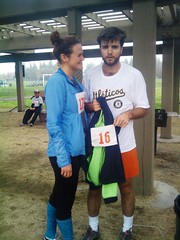
Franklin Schneider is unemployed, and determinedly so. His new book,
Canned, offers a series of essays about the perks of unemployment in the United States, relative to the seemingly ceaseless purgatory of “work.” The collection, published this fall by
Kensington Books, is caustic when it’s not ironic, macabre when it’s not darkly funny, and perhaps more than anything, a portrait of America that we should be used to by now. Schneider grew up in small town Iowa, studied writing at the University of Iowa, and went on to pursue a career in…well, a career in unemployment, and more specifically, writing about unemployment.
What perhaps is most interesting about Schneider’s journey is not the number of times he tries to emulate the alleged normalcy of gainful employment, but rather the fact that his intelligence and ability to adapt is given a back seat to an unabashed disrespect for authority. As a graduate student in creative writing, former employee in both the for-profit and nonprofit worlds myself, I sympathize with Schneider’s instinct for resisting work for work’s sake. And yet, if I ever were living on unemployment, I think I'd take advantage of that time to travel or volunteer. I don't think I have the constitution to support his bar habits, nor the patience to simply hang out for months at a time. Maybe Schneider would see this as my fatal flaw, proof that I have been fully indoctrinated into the psyche of the working world.
I am not interested in drawing a parallel between Schneider and me, mostly because he alludes to illegal activities that I am too cowardly to ever commit, but also because his acerbic wit is always two steps ahead of my own. It is courageous to publish a book detailing not one, not two, but ten unflattering personal situations. I admire his honesty, and his flourish for the absurd. This is the man whose first job involved detassling corn in fields of hog shit in rural Iowa; how’s that for an introduction to world of "work"?
In many ways, by detailing the darker, more disgusting, and least flattering aspects of his various jobs, Schneider is unknowingly painting himself out to be the martyr of the working class. Perhaps that is a heavy-handed way to put it. I’ll admit that I read this book after finishing a class on “progressive” literature, in which we were asked to compare Communist, socialist, and proletariat theories to novels written in the twentieth century. Maybe that explains part of my innate sympathy to Schneider and his professed love for a life of unemployment, free from bosses who prefer him to settle for mediocrity, or passive-aggressive telemarketers who bully their teams into making their numbers. This is the man who worked at a mall arcade, a pornographic video store, a failing internet startup, a D.C. consulting firm steeped waist-deep in red tape, and even a nonprofit devoted to AIDS research. That’s quite a trajectory. Whether or not Schneider is willing to acknowledge it, he clearly has the skills to succeed in the “working world.” And yet, that’s not where he finds fulfillment. So instead he finds ways to get fired, and then lives as much in the present tense as possible.
To put it bluntly: Schneider’s got balls. That, a finely tuned sense of dark humor, and perhaps a future in stand-up. If he decides it’s worth the effort.






